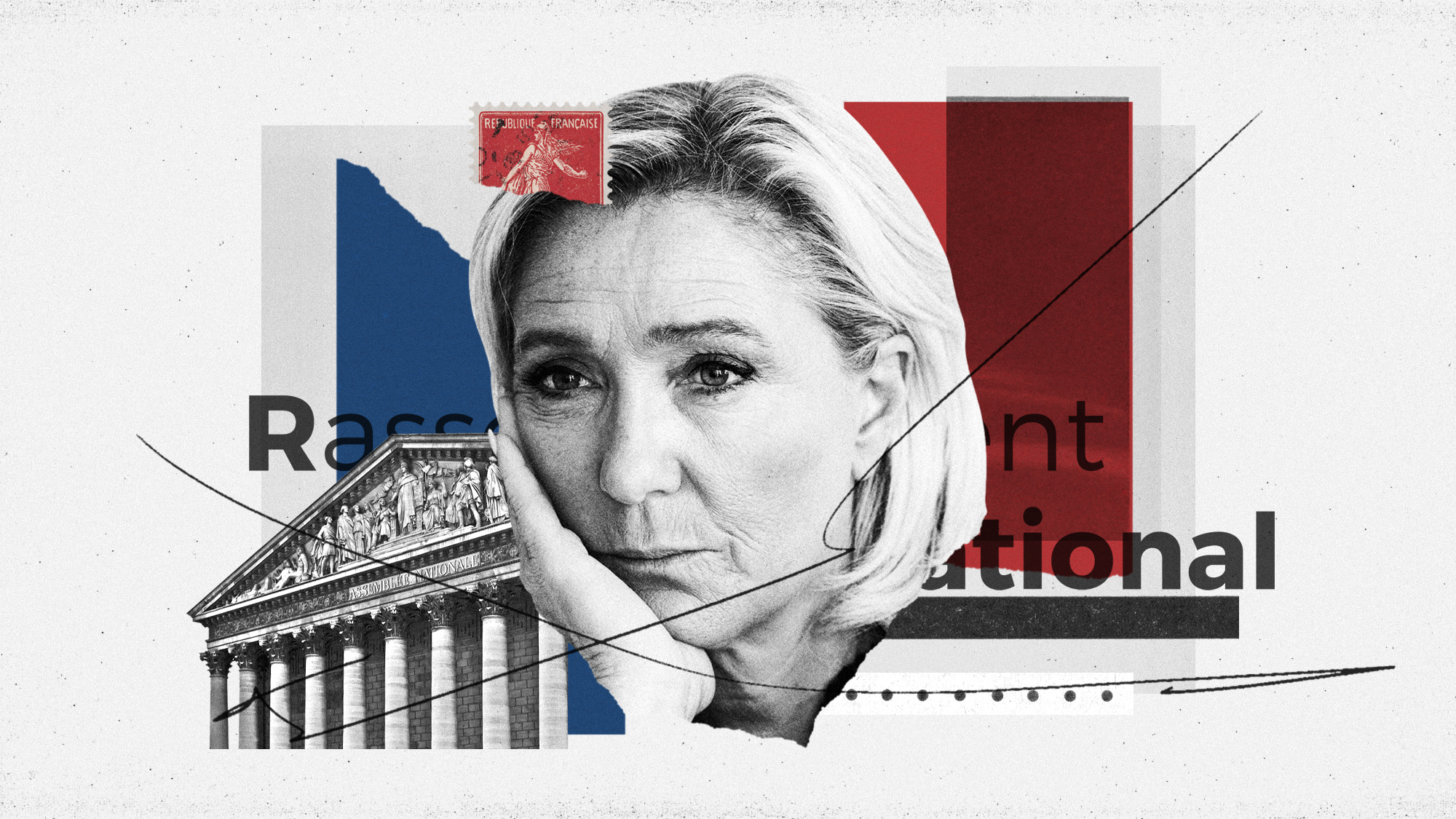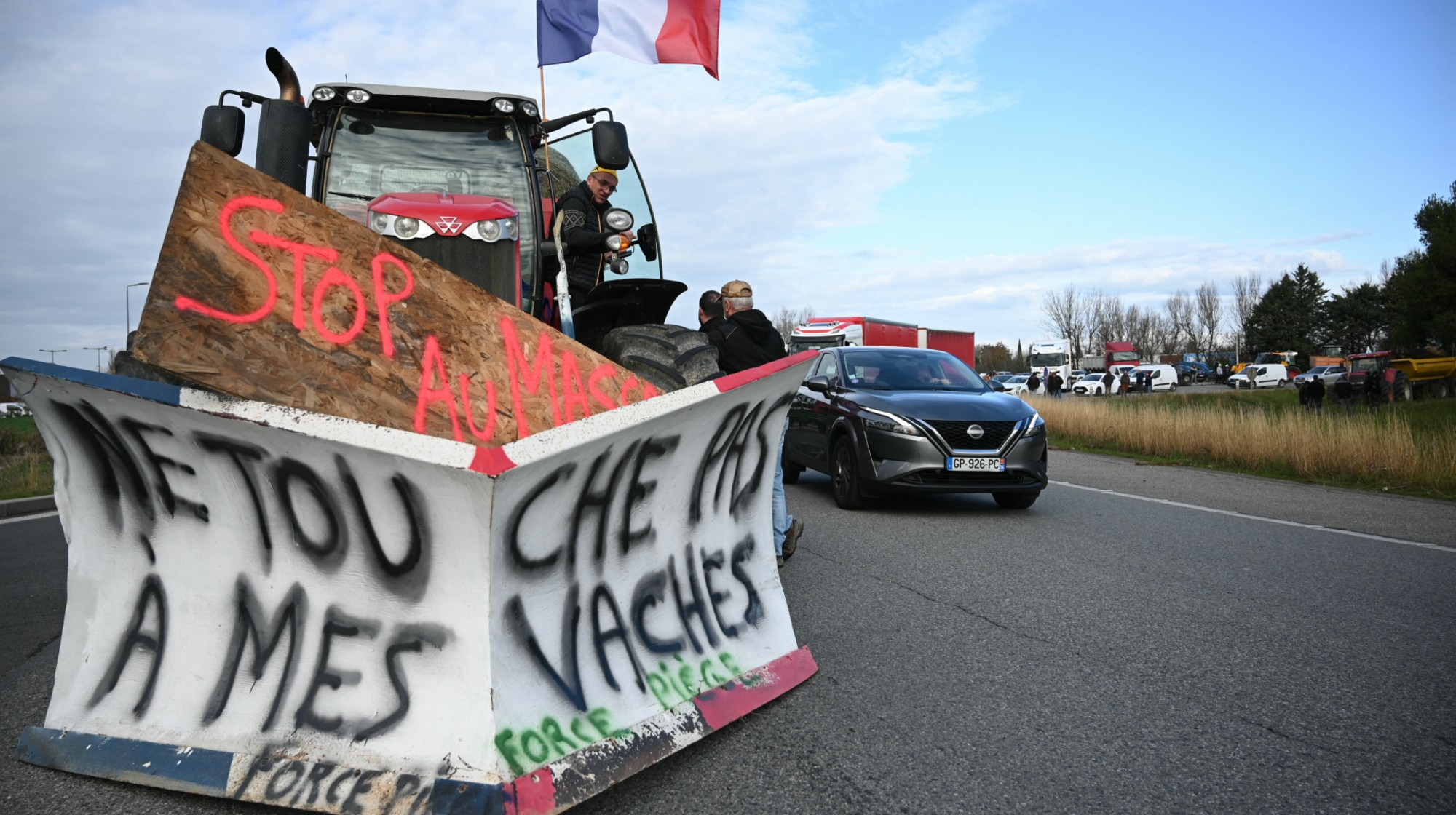What does the Le Pen verdict mean for the future of French politics?
Convicted of embezzlement and slapped with a five year ban on running for public office, where does arch-conservative Marine Le Pen go from here — and will the movement she leads follow?


A free daily email with the biggest news stories of the day – and the best features from TheWeek.com
You are now subscribed
Your newsletter sign-up was successful
There is perhaps no politician in Europe today who embodies the continent's far-right more than Marine Le Pen. Her thrice-unsuccessful presidential runs on a staunch anti-immigration platform have positioned Le Pen as one of the elder statesmen in Europe's rightward political lurch for more than a decade, alongside similar figures like Hungary's Viktor Orban and Germany's Alice Weidel. But after years of working to make France a more restrictive place culturally and economically, Le Pen's political fortunes may have finally run out: On March 31, a French court convicted her of embezzling millions in European Parliament funds, sentencing Le Pen not only to several years of prison time but also barring her from running for political office for the next five years.
Reportedly muttering "incredible" as she stormed out of the courtroom before her sentence was fully announced, Le Pen now finds herself in political exile while the movement she once led scrambles to persevere in her absence. Though she has vowed to appeal her conviction, Le Pen's political future is now wholly unclear, as is the future of her National Rally Party, and French domestic politics as a whole.
What did the commentators say?
Le Pen's conviction and sentence is "setting off a democratic crisis in France" and could "usher in a period of renewed political turmoil" if Le Pen chooses to attack the sitting French government, or if public anger "spills over into the streets," The New York Times said. The verdict is a "political earthquake" that has succeeded in "upending France's political order" and thrust her political party "into limbo," The Wall Street Journal said.
The Week
Escape your echo chamber. Get the facts behind the news, plus analysis from multiple perspectives.

Sign up for The Week's Free Newsletters
From our morning news briefing to a weekly Good News Newsletter, get the best of The Week delivered directly to your inbox.
From our morning news briefing to a weekly Good News Newsletter, get the best of The Week delivered directly to your inbox.
Already, many of Europe's leading right-wing figures have "quickly rallied to her defense after the decision," said CNN, including the Kremlin, which described her conviction as "trampling on democratic norms." Le Pen's punishment is like a "bad film" and a "declaration of war by Brussels," said Italian nationalist Deputy Prime Minister Matteo Salvini on X. It's not merely Le Pen herself being punished, but "French democracy that is being executed," said Jordan Bardella, Le Pen's protege and current president of the National Rally. "Je suis Marine!" said Hungarian authoritarian Prime Minister Viktor Orban on X. Le Pen's sentence will "backfire, like the legal attacks against President Trump," said Elon Musk on X.
Le Pen's court-imposed ineligibility to run for office could lead to a "major internal rift" within her National Rally Party, said Mujtaba Rahman, the managing director for Europe at the Eurasia Group, to The Washington Post. While the party's various factions "all fall in behind Le Pen," her replacement Bardella may be a "lot less effective in corralling" the party to "remain disciplined and united and to cohere around one view."
What next?
It could be "18 months to two years before Le Pen gets her appeal hearing," the BBC said, given the French judicial system's "overloaded" calendar. In addition to her candidacy ban, Le Pen was sentenced to four years in prison, with two years suspended and the other two potentially "served under a form of house arrest," the Times said.
Crucially, should she decide to, Le Pen will be able to "perform her retaliation at the Assemblée Nationale" where she sits as an MP in a seat "not immediately threatened" by the ban on future runs for office, said Le Monde. In the days leading up to her conviction, Le Pen's National Rally Party "suddenly stepped up its threats" to "topple" Prime Minister Francois Bayrou's government in what "appeared to be a deliberate diversion" from her then-looming sentencing. Meanwhile, as Le Pen's party contemplates a replacement for her in the 2027 elections, it risks "losing the momentum it had built up" in recent years, all while even further-right groups look to "capitalize on their main adversary's downfall."
A free daily email with the biggest news stories of the day – and the best features from TheWeek.com
Rafi Schwartz has worked as a politics writer at The Week since 2022, where he covers elections, Congress and the White House. He was previously a contributing writer with Mic focusing largely on politics, a senior writer with Splinter News, a staff writer for Fusion's news lab, and the managing editor of Heeb Magazine, a Jewish life and culture publication. Rafi's work has appeared in Rolling Stone, GOOD and The Forward, among others.
-
 How the FCC’s ‘equal time’ rule works
How the FCC’s ‘equal time’ rule worksIn the Spotlight The law is at the heart of the Colbert-CBS conflict
-
 What is the endgame in the DHS shutdown?
What is the endgame in the DHS shutdown?Today’s Big Question Democrats want to rein in ICE’s immigration crackdown
-
 ‘Poor time management isn’t just an inconvenience’
‘Poor time management isn’t just an inconvenience’Instant Opinion Opinion, comment and editorials of the day
-
 Will increasing tensions with Iran boil over into war?
Will increasing tensions with Iran boil over into war?Today’s Big Question President Donald Trump has recently been threatening the country
-
 Switzerland could vote to cap its population
Switzerland could vote to cap its populationUnder the Radar Swiss People’s Party proposes referendum on radical anti-immigration measure to limit residents to 10 million
-
 Greenland’s capital becomes ground zero for the country’s diplomatic straits
Greenland’s capital becomes ground zero for the country’s diplomatic straitsIN THE SPOTLIGHT A flurry of new consular activity in Nuuk shows how important Greenland has become to Europeans’ anxiety about American imperialism
-
 Epstein files topple law CEO, roil UK government
Epstein files topple law CEO, roil UK governmentSpeed Read Peter Mandelson, Britain’s former ambassador to the US, is caught up in the scandal
-
 ‘Lumpy skin’ protests intensify across France as farmers fight cull
‘Lumpy skin’ protests intensify across France as farmers fight cullIN THE SPOTLIGHT A bovine outbreak coupled with ongoing governmental frustrations is causing major problems for French civil society
-
 Rob Jetten: the centrist millennial set to be the Netherlands’ next prime minister
Rob Jetten: the centrist millennial set to be the Netherlands’ next prime ministerIn the Spotlight Jetten will also be the country’s first gay leader
-
 Israel arrests ex-IDF legal chief over abuse video leak
Israel arrests ex-IDF legal chief over abuse video leakSpeed Read Maj. Gen. Yifat Tomer-Yerushalmi had resigned from her post last week
-
 The Louvre’s security measures are in hot water after a major heist
The Louvre’s security measures are in hot water after a major heistIn the Spotlight Millions of dollars in jewels were stolen from the museum
